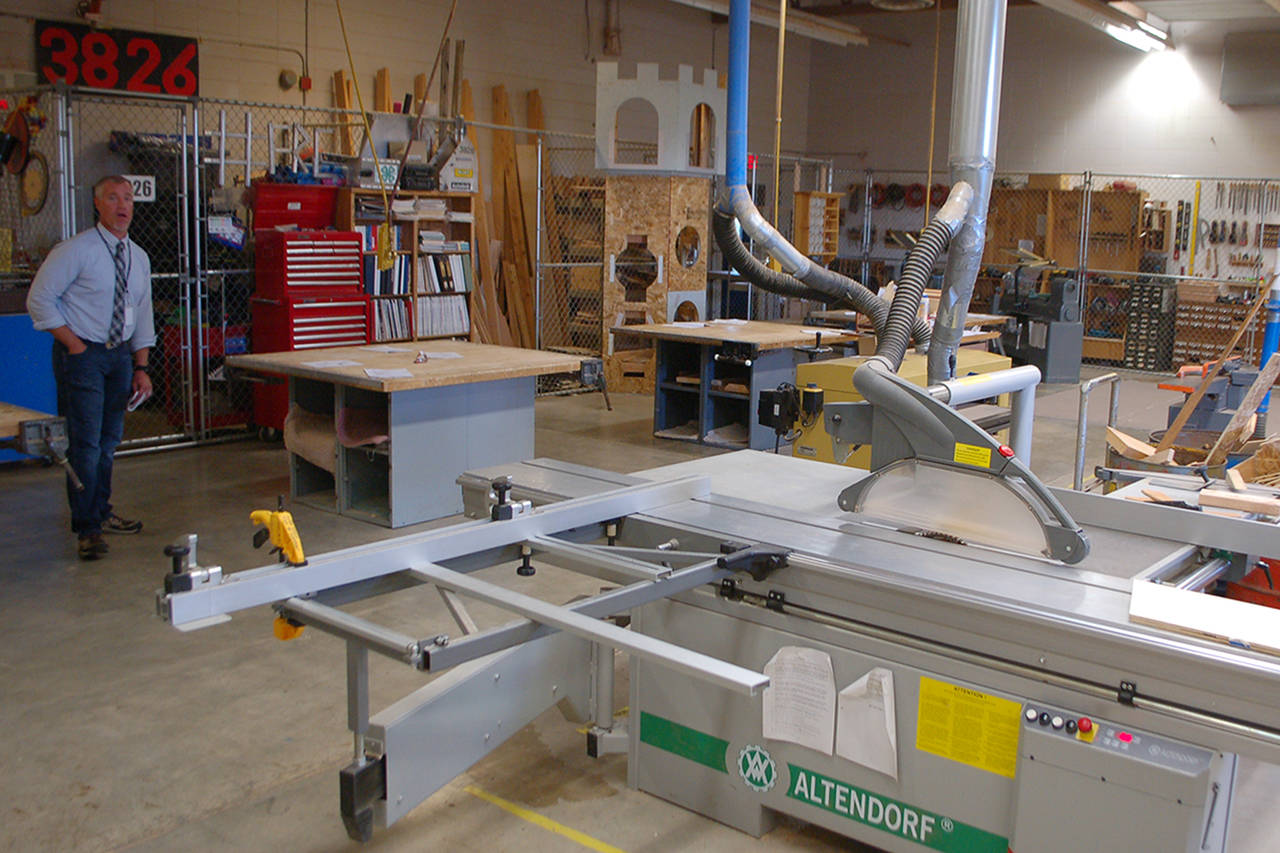While much of the focus in high school is on math, English and history, none of those core subjects are the biggest department at Sequim High School.
That honor falls to a group of classes in the Career & Technical Education (CTE) field.
“We had almost 800 students cumulatively in our CTE classes last year,” said Steve Mahitka, an SHS teacher and the school’s CTE director.
“We have a lot of great CTE teachers and classes, and that gets students excited for what they’re doing,” SHS principal Shawn Langston added.
With Washington State’s Core 24 graduation requirements giving students so little time for electives some school districts have been eliminating CTE classes. SHS students, however, are still finding ways to make their schedules work.
“When I’ve given (other administrators) tours of our school,” Langston said, “they get to our shop area and say ‘Wow, you still have a woodshop and an auto shop and welding — how do you do that?’ The fact is that our kids still love it and want to learn it, so we keep offering it.
“Those classes are almost always full.”
Langston noted that former students of his that currently work in various trade fields have said that their companies are always hurting for employees because of a lack of CTE classes in many high schools. He said he wants Sequim High students to have the ability to learn those sorts of things in high school, if that’s what they’re interested in doing long-term.
Ed-tech boom
But CTE isn’t just about traditional trade fields anymore — it can be about high-tech fields as well.
Sequim high also offers programs like robotics, multimedia production and engineering design are available as well, with students even being able to learn computer-aided drafting (CAD) software or earn computer certifications like A+ computer repair or a Cisco Certified Network Associate (CCNA) certification that can help lead to high-end information technology jobs, or earn college credit with newer advanced placement Computer Science and AP Computer Principles classes.
One of the faster-growing programs within Sequim High’s CTE is Project Lead The Way, a high-end program including biomedical classes and new aerospace engineering classes that Langston and Mahitka said they are very proud of.
“We’ve been getting more students interested in these classes, and they offer a lot to our kids,” Langston said. “But our teachers have loved it, too. (Science teacher) Laura (Gould) was actually sad she didn’t get to go to the (Project Lead The Way) training session this summer.”
At a school board meeting in June, Mahitka and Gould gave a presentation to the board on Project Lead The Way and indicated that they had won a $25,000 grant to help fund the new aerospace engineering classes, and that attendance had been steadily increasing in the biomedical classes since they were introduced several years ago.
Students in Project Lead The Way classes and other classes around the CTE program get to use some fairly advanced tools at times as well, including 3D printers and various other fabrication machines that are starting to be used in more and more fields as those technologies develop and mature.
PNNL Marine Sciences Laboratory is providing a new 3D printer through a technology partnership with the school, and Mahitka and Langston have worked to get other grants and partnerships for SHS to acquire other technology and resources for their CTE classes.
“It’s a lot of work, but it’s worth it to make this happen for our students,” Mahitka said.
“These classes are really a great way for our students to get practical knowledge of things they’ll be working with now,” Langston said.
“That’s why we work so hard to protect and maintain our CTE classes.”
Interim superintendent Rob Clark has a similar viewpoint on CTE classes, indicating in a previous interview that he’s a strong proponent of them and wants to protect them as much as he can.
While no plans are immediately in the works, Mahitka did indicate two CTE classes he would like to add in the future if he’s able to: an early childhood education program and an athletic medicine program.
Langston added that he wants to be able to add more AP classes to the program, or other high end classes that provide college credits or practical certifications.



